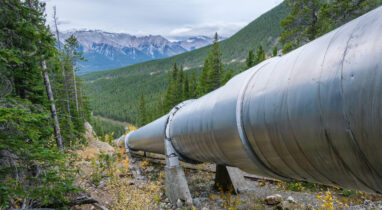The 2023 Federal Budget released today offers smart, market-oriented measures to increase Canada’s low-carbon competitiveness. It is a big boost for clean energy, even though it will not close the gap with the United States on important technologies like hydrogen and direct air capture.
“There’s no doubt that Canada is in a stronger position today to attract low-carbon capital than it was yesterday,” said Clean Prosperity Executive Director Michael Bernstein. “Still, urgent action will be needed on policies like contracts for difference if Canada wants to systematically level the playing field with the US.”
“The US is like an airline sending everyone straight to first class. Today, Canada upgraded some of its passengers, but it can’t forget about the people still sitting in coach.”
“It’s critical that the government follow through with its budget commitment to consult on a broad-program of contracts for difference. Contracts for difference that guarantee the value of carbon credits would help close the incentive gap for some clean technologies, including hydrogen and direct air capture — without breaking the bank.”
Today’s budget committed to providing carbon contracts for difference to a select set of large decarbonization projects, via the Canada Growth Fund. While a positive step, a broader program that is accessible by a wide range of industrial emitters is still needed urgently. Such a program should be designed in consultation with provinces and should include measures to increase the efficiency and transparency of carbon-credit markets.
“The US is like an airline sending everyone straight to first class. Today, Canada upgraded some of its passengers, but it can’t forget about the people still sitting in coach.”
Clean Prosperity Executive Director Michael Bernstein
Many decarbonization projects depend on revenues from selling carbon credits in order to be profitable and uncertainty about the future value of these credits has been holding up investment. Carbon contracts for difference are like insurance policies on the future value of carbon credits that will help de-risk expensive capital projects and get investment flowing.
Clean Prosperity welcomes the shift in Budget 2023 towards market-oriented and broad-based tax credits, instead of expanding discretionary pools of money like the Net Zero Accelerator initiative. Of particular note are the clean electricity and clean manufacturing tax credits, which will help close investment incentive gaps with the United States.
Another measure announced in the budget with high potential impact is the commitment to develop a plan to streamline permitting processes for new clean-energy infrastructure by the end of the year. Permitting delays are currently a significant barrier to infrastructure development.
“We are in a clean energy arms race and there is no time to waste,” said Bernstein. “The government must move quickly to implement the measures announced today, and should rapidly stand up a broad-based program of contracts for difference if Canada is to compete with the US for low-carbon investment.”
Read more about Clean Prosperity’s Budget 2023 recommendations here:
Creating a Canadian Advantage: Policies to help Canada compete for low-carbon investment



